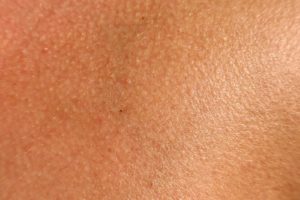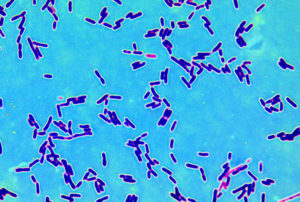 A recent study may contribute to explaining why autism spectrum disorder (ASD) rates are rising so rapidly in the US. The CDC reports that 1 in 36 children have autism spectrum disorder as of 2020!! Researchers and physicians agree that things in the environment (e.g., pesticides) are playing a role in this increase.
A recent study may contribute to explaining why autism spectrum disorder (ASD) rates are rising so rapidly in the US. The CDC reports that 1 in 36 children have autism spectrum disorder as of 2020!! Researchers and physicians agree that things in the environment (e.g., pesticides) are playing a role in this increase.
Even though the study was conducted in mice, it examined the impact of pesticides called pyrethroids on neurological development. They found that even at low levels that humans are typically exposed to, there were neurological effects on mice who were exposed during pregnancy. Their behaviors were altered in a negative way, for example an increase in repetitive behaviors.
Pyrethroids are being used in increasing amounts in the US for all sorts of insect treatments, both inside and outside of homes. It's very frequently used against mosquitos. Studies find that 70 to 80% of the US population have pyrethroid breakdown products (metabolites) in the blood. This is because we are exposed to chronic low levels - whether in the air, in water, around our homes or workplace.
The researchers wrote in the published research that scientists are especially concerned with pyrethroid exposure because it has a harmful effect on fetal development in both humans and animals. Studies are finding links from pyrethroid exposure during pregnancy or infancy and developmental delays.
"Critically, evidence from recent epidemiology and longitudinal studies suggests that ambient prenatal exposure to pyrethroid pesticides poses a risk for autism, developmental delay, and neurodevelopmental disorders in general. Analysis of data from the CHARGE study showed a significant increase in risk for either ASD or developmental delay from exposure during pregnancy to pyrethroid pesticides being applied up to 1.5 km from the home. A regional study in New York showed an association between areas where aerial application of pyrethroid pesticides was used, and ASD and developmental delay prevalence in the area. Additionally, the presence of pyrethroid metabolites in blood or urine correlates with risk for ADHD in children."
Bottom line: Avoid using pyrethroids around the home and yard. Look into IPM (Integrated Pest Management) or organic and natural ways to deal with pests. Pyrethroids are also toxic to bees, and we need bees. Synthetic pyrethroids (which is what is commonly used) are not like natural extracts from the chrysanthemum flower, and don't let someone tell you they are.
Excerpts from Medical Xpress: Research links common insecticide to neurodevelopmental disorders
A new study from The University of Toledo suggests early exposure to a common class of insecticides called pyrethroids may increase the risk of autism and other developmental disorders, even at levels currently recognized as safe by federal regulators. ...continue reading "Pyrethroids and Autism Spectrum Disorder"


 A recent study may contribute to explaining why autism spectrum disorder (ASD) rates are rising so rapidly in the US. The CDC
A recent study may contribute to explaining why autism spectrum disorder (ASD) rates are rising so rapidly in the US. The CDC 



 Not all foods are equal. Especially dairy milk vs alternative "milks", such as almond or oat milks. Or plant-based "meat" vs animal meat. A recent
Not all foods are equal. Especially dairy milk vs alternative "milks", such as almond or oat milks. Or plant-based "meat" vs animal meat. A recent 
 Finally... two states (California and New York) are seeking to ban 5 chemicals frequently added to food that are known to cause health problems (cancer, neurological problems, hormone disruptors). They have no reason to be in food (and yes, safer alternatives exist). The five chemicals of concern are: red dye 3, titanium dioxide, potassium bromate, bromated vegetable oil, and propylparaben.
Finally... two states (California and New York) are seeking to ban 5 chemicals frequently added to food that are known to cause health problems (cancer, neurological problems, hormone disruptors). They have no reason to be in food (and yes, safer alternatives exist). The five chemicals of concern are: red dye 3, titanium dioxide, potassium bromate, bromated vegetable oil, and propylparaben. By now no one should be surprised that the male urethra has a microbiome - the community of microbes (bacteria, viruses, fungi) that live there. After all, we have millions of microbes living all over and in us.
By now no one should be surprised that the male urethra has a microbiome - the community of microbes (bacteria, viruses, fungi) that live there. After all, we have millions of microbes living all over and in us.
 A number of studies in the past decade found that exposure to
A number of studies in the past decade found that exposure to